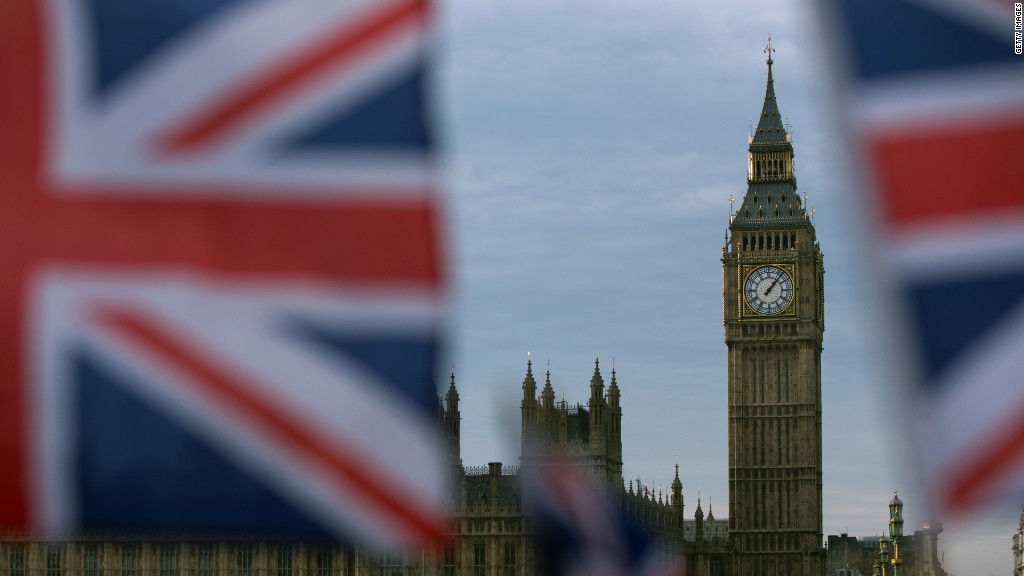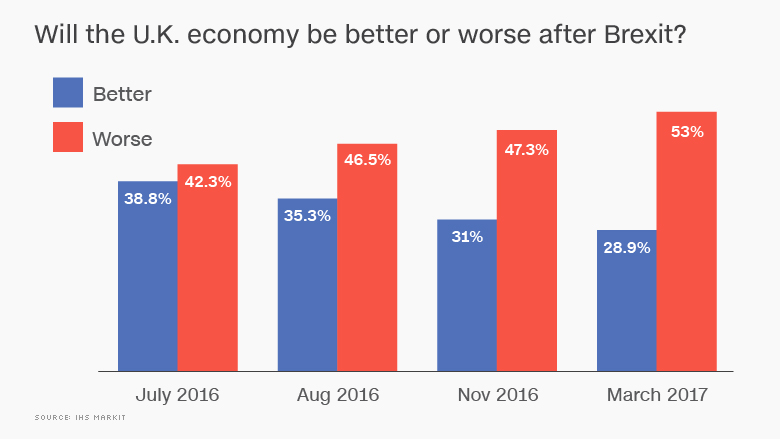
Brexit gloom appears to be spreading.
Just 29% of British households surveyed in March believe Brexit will be good for the U.K.'s economy over the next 10 years, according to IHS Markit.
That's a major turnaround from July of 2016, when 39% of the public believed that leaving the European Union would make Britain's economy better off.
The share of households that expect economic prospects to worsen has increased from 42% to 53% over the same time period. Eighteen percent anticipate no change.
"Pessimism has now spread to all age groups and income brackets," said Chris Williamson, chief business economist at IHS Markit. "The most marked turnaround is evident among the poorest paid, who have switched from being the most optimistic to now being the most downbeat."

Households in Scotland, where 62% of the public voted against leaving the EU, are the most pessimistic about its impact on the economy.
People in manufacturing and construction roles were the only groups of workers who see Brexit as beneficial in the long run. Williamson said manufacturing workers might see the advantage of a weaker pound that gives a boost to exports. The currency has fallen 17% since the referendum.
A separate report published Monday by the cross-party think-tank Demos said Wales and Northern Ireland are most vulnerable to the economic risks posed by Brexit.
Wales voted in favor of leaving the bloc, while voters in Northern Ireland voted to stay. Both rely on EU funding, exports to the EU and, in the case of Northern Ireland, a large number of European workers.
Brexit: EU says Britain's divorce bill may hit $62 billion
Prime Minister Theresa May is expected to trigger the official EU exit process on Wednesday.
While the U.K. economy performed unexpectedly well in the months following the June referendum, reality is starting to bite. Inflation jumped to 2.3% in February over the previous year, and consumers are starting to buckle under the pressure of higher prices.
Williams said it would be fascinating to see how sentiment changes during negotiations.
"For now it seems that the population has at least become more downbeat on the economic consequences of Brexit," he said.
The survey of 1,500 respondents was collected as part of the monthly Markit Household Finance Index.


